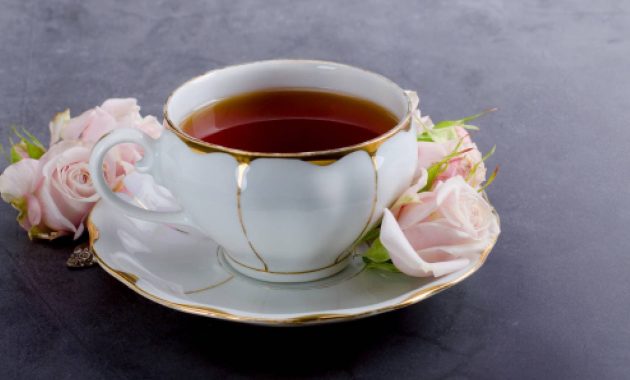Rose tea is a herbal beverage which is known to alleviate period pain, provide hydration and promote better skin
If you are on the lookout for a nice hot beverage that is sure to relax you, rose tea is a must-have. Made from the petals and buds of the king of flowers – roses – rose tea is not only rejuvenating, but is antioxidant-rich, helps in reducing period pain and is a great source of hydration!
However, rose tea also has a slight laxative effect, and must be had to keep the appropriate dosage in mind. According to a study published in the journal Flower Breeding and Genetics, all types of roses are edible. However, their taste varies. Read on to learn more about this aromatic beverage.
What is rose tea?
Rose tea is made from the petals and buds of a rose bush. “It is naturally caffeine free, a good source of hydration, rich in antioxidants, and may help relieve menstrual pain,” says dietician Veena V. The taste of this herbal drink is light and subtle and has a bitter-sweet taste, depending on the type of rose used. Rose tea is said to have originated in China and came to be used as a traditional Chinese medication.
Nutritional value of rose tea
While rose tea does not contain calories, it has some vitamins and antioxidants such as vitamins A, C, and E among others. “But this tends to change depending on factors like how many petals were used or time it took to brew it,” explains Veena.
How to make rose tea?
To make rose tea, simply steep a handful of dried rose petals in hot water for about 5-10 minutes, strain, and enjoy. You can adjust the number of petals and steeping time based on your preference for flavour and strength.
Also Read

Health benefits of rose tea
1. Rose tea can be hydrating
One of the biggest Rose tea benefits is that it is extremely hydrating. The primary content of rose tea is water, and this is a great drink for those who keep forgetting to have enough glasses of plain water in a day. Lack of water or dehydration can lead to symptoms of fatigue, headaches, as well as more serious problems such as low blood pressure, states the National Institute of Health.
2. May promote relaxation
Drinking rose tea can also help in reducing stress, anxiety as well as depression, states a study, published in Heliyon. Similarly, this beverage can help deal with sleep-deprivation induced anxiety as well, states this rat study, published in Journals of Medicinal Food.
3. Has an antioxidant effect
Antioxidants stop the production of free radicals and can help prevent chronic diseases and build immunity. Rose tea contains antioxidants such as polyphenols. Polyphenols are associated with lowering the risk of some cancers, as well as cardiovascular diseases, and diabetes, states this study, published in Molecules.

4. May redule menstrual pain
If you are not someone who likes to take painkillers when on your period, then rose tea is a good alternative. A study cited in the Journal of Midwifery & Women’s Health, evaluated the effect of rose tea among 130 teenagers in Taiwan. They were given two cups of rose tea every day for 12 days, one week before their periods. They followed this for six menstrual cycles. It was seen that rose tea helped with period pain.
5. May improve skin quality
Rose is one of the most popular ingredients in skin care products. Rose petals are antioxidant and anti-inflammatory and can help skin look younger as well as healthier. It also has anti-bacterial properties that can help prevent acne.
Select Topics of your interest and let us customize your feed.
PERSONALISE NOW
What are potential side effects of rose tea?
Problems regarding the consumption of rose tea involve potential allergic reactions in those sensitives to the product and possible drug interactions. Moreover, excessive drinking may lead to indigestion or slight laxative results due to its diuretic effects.

FAQs
Does rose tea contain caffeine?
No, unlike other teas and most hot beverages, rose tea is caffeine-free. This is why it is a great substitute for other hot drinks. However, make sure that you are using only rose petals. If these are mixed with other tea leaves, then there would be caffeine content.
Can rose tea be had every day?
Rose tea can typically be consumed daily in moderation, but it’s essential to listen to your body and consult with a healthcare professional, especially if you have any underlying health conditions or are pregnant.
What is the dosage that is good for rose tea every day?
There isn’t a standardized dosage for rose tea but consuming 1-2 cups per day is generally considered safe for most individuals. However, it’s advisable to start with a smaller amount and monitor how your body responds. Always consider individual tolerance and consult with a healthcare provider if unsure.
#Rose #Tea #benefits #dosage
